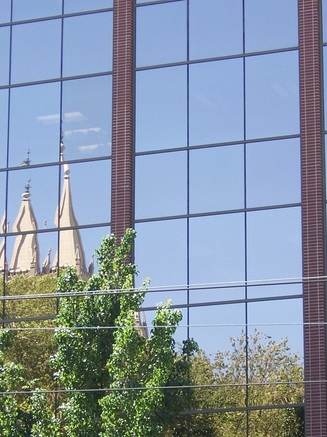
No one likes to be told he or she is selfish, especially in a bad economy. And when facts get in the way of political agendas, well, that can really screw up someone’s day.
Actually, the study held few surprises for people who keep track of such things. People in parts of the country in which a greater concentration of religious folks live give much more than those in parts where people are less religious. Conservative states give more than liberal ones.
And finally, poor people give more generously than the rich. Households pulling in $50,000 to $75,000 gave an average of 7.6 percent of their discretionary income nationwide, compared with only 4.2 percent on average for those making $100,000 or more.
| | This is interesting stuff, but the angle a lot folks are missing has to do with the major outlier among the 50 states — Utah. In the Beehive State, residents were found to have given 10.6 percent of their discretionary income to charity. Mississippi was way behind in second place with 7.2 percent. While wealthy people in Utah still give less than those of modest means, the differences are not as stark. In Utah, people earning $200,000 and more gave 8.8 percent, compared with 11.6 percent for those in the $50,000 to $99,999 range. Yes, most of that money likely goes to The Church of Jesus Christ of Latter-day Saints. Some reporting in recent weeks has been critical of the church for how it uses its funds, but charity comes in many forms, including spiritual. The Mormon Church relies mostly on volunteer leadership, so salaries are not a big factor. The church's charity for the poor goes to non-Mormons as well as church members. And if you know anything about church members (I am one), you understand that many of them give much more in personal service and time than they would ever claim on a tax form. With so much attention on the church right now because of Mitt Romney’s campaign, this is a relevant topic. Contrary to how it is often portrayed, church contributions are voluntary — no one compares donations to earnings or attempts to enforce tithing. Church members are asked at the end of the year to meet with their bishop and declare whether their donations constitute a full tithe. If they don’t want to have this meeting, that is their choice. In Utah, it’s hard to tell whether a Republican-Democrat divide exists. Salt Lake City residents, who tend to be Democrats and non-Mormon, gave at an 8 percent clip. I'm guessing most charitable people would rather not call attention to their giving. But if the nation is intent on studying Mormons and how they live, this is an aspect that ought to be included. As for that spin — well, conservatives and religious folks nationwide seem to be saying they walk the walk, while liberals talk about the needs of the poor but are in reality stone-hearted. Liberals, on the other hand, say the difference lies in basic philosophies. They say they are willing to pay higher taxes so the government can conduct charity more effectively. Those arguments aren’t heard much in Utah. |

 RSS Feed
RSS Feed

